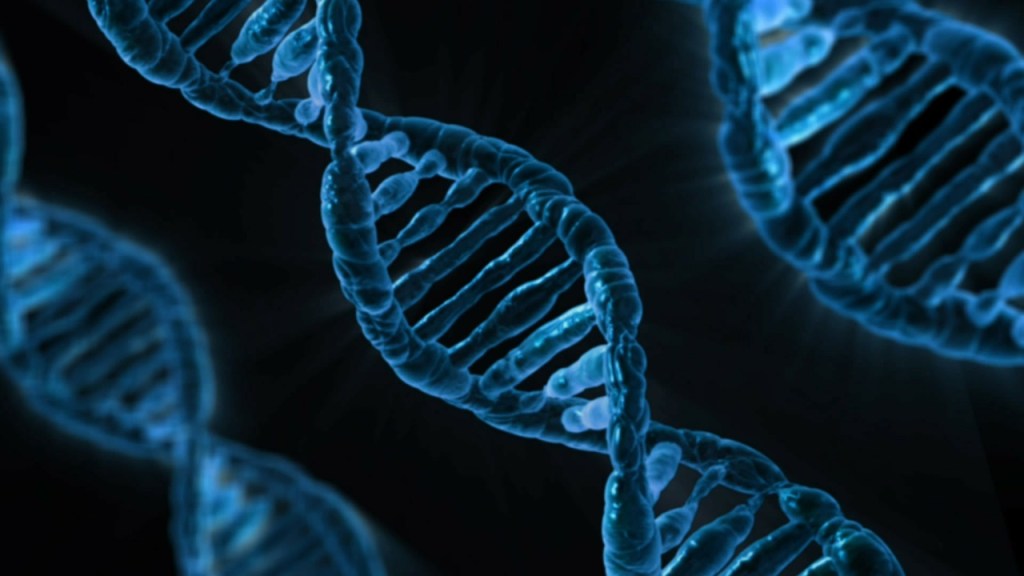Valdosta man’s search for family’s roots leads to arrest in 2001 killing
Published 1:00 pm Friday, July 26, 2019

- DNA graphic
VALDOSTA — For more than a dozen years, friends and family wondered: Who killed Christine Franke?
The Orlando, Fla., woman died a violent death. Police had DNA evidence, but no leads turned up on law enforcement’s radar.
Then, years later, a Valdosta man wanting to probe his family history unknowingly provided the clue that cracked the case and led to an arrest.
This is a story of death, of advancing technology and family connections.
Oct. 21, 2001
Christine Franke, 25, left her job late at night. She worked as a server at the Cigarz Bar at Universal City Walk in Orange County, Fla., part of the Universal Studios Theme Park resort. She likely came home with about $300 in tips, according to Florida court documents.
A friend who was out of town called Franke but didn’t get an answer at her apartment. The friend called a neighbor and asked the neighbor to check on Franke.
The neighbor found her on the floor of her apartment, dead. She had been shot through the head, according to court documents.
A medical examiner determined she had not been raped, but semen was found on her body, records show.
Police entered the crime scene DNA into criminal databases but couldn’t find a match. In addition, her tip money was never found, police said.
In the years that followed, authorities used new genetic techniques to build a rough sketch of the suspect based on what could be learned from the DNA sample, but no new leads developed.
For 17 years, Christine Franke’s killing was a cold case.
The Valdosta connection
Fast forward to 2016. John Hogan, a Valdosta businessman, former deputy coroner and one-time hospital dialysis technician, decided he wanted to learn more about his family history. He submitted a saliva sample to Ancestry.com, an internet-based firm that provides genealogical services to customers.
“They told me about people I knew I was related to, people I suspected I was related to — and people I didn’t know I was related to,” he said.
Hogan’s DNA profile was also sent to GEDmatch, a genealogy database and website intended to help genealogists.
GEDmatch has also picked up a reputation as a prime tool for law enforcement, especially after California authorities used it in 2018 to locate a suspect in the “Golden State Killer” case.
In May 2018, Parabon Nanolabs, a Virginia-based firm specializing in “genetic genealogy,” ran the DNA sample from the Christine Franke crime scene through GEDmatch and found several promising partial matches.
Hogan said the suspect appeared to be one of his relatives.
“Investigators came to Valdosta and started talking to my family, but they weren’t forthcoming about what they were doing,” Hogan said.
The investigators claimed a man had died in Florida and they were searching for his family members, he said.
Meanwhile, Parabon began research combining genetic analysis with traditional genealogical research to trace the suspect’s family tree.
The investigation ranged from Virginia to Miami, Hogan said.
A family affair
Authorities began building a family tree using the available genetic information. The top two matches in the DNA search both were descended from Charlie E. Burgman (1906-68) and Mary Shy Burgman (1910-87) of Valdosta — John Hogan’s great-grandparents.
On Oct. 21, 2018, Orlando detectives drove to Valdosta to get a DNA swab from a 79-year-old woman whose name came up in the Burgman family tree. She confirmed she had two sons.
The sons were a pair of brothers who would be John Hogan’s second cousins, both living in Orlando, reports show.
Police used surreptitious means to find out which brother was their suspect.
An undercover officer struck up a conversation with one brother and offered him a bottle of Gatorade. After he drank the Gatorade and threw the bottle away, officers retrieved it for DNA testing.
The result: It wasn’t him.
That left the other brother.
On Oct. 30, 2018, police kept him under surveillance at his residence and saw him smoking cigars in the driveway. Detectives later recovered several of the smoked cigars, which were tested for DNA.
The test results were “consistent with the male contributor to the DNA left on the scene,” court documents show.
On Nov. 2, 2018, authorities arrested Benjamin Lee Holmes, 38, on charges of first-degree murder with a firearm and robbery with a firearm, according to an arrest report. He would have been 21 at the time of the killing.
Holmes has a lengthy arrest record and is being held without bond in the Orange County Jail, according to court documents. His trial has been tentatively set for August, according to the Orange County Clerk of Court’s website.
Where it goes from here
Orlando police told John Hogan a few weeks ago that his DNA test, an attempt to trace his family’s history, had led to an arrest in a murder case.
“I’ve never met (Holmes),” Hogan said, though some of his family has.
A movie company called and said they were interested in making a film about the case, he said.
If another DNA test were needed for the trial, Hogan said he would willingly give it.
“I would do it for Christine Franke’s family,” he said.




